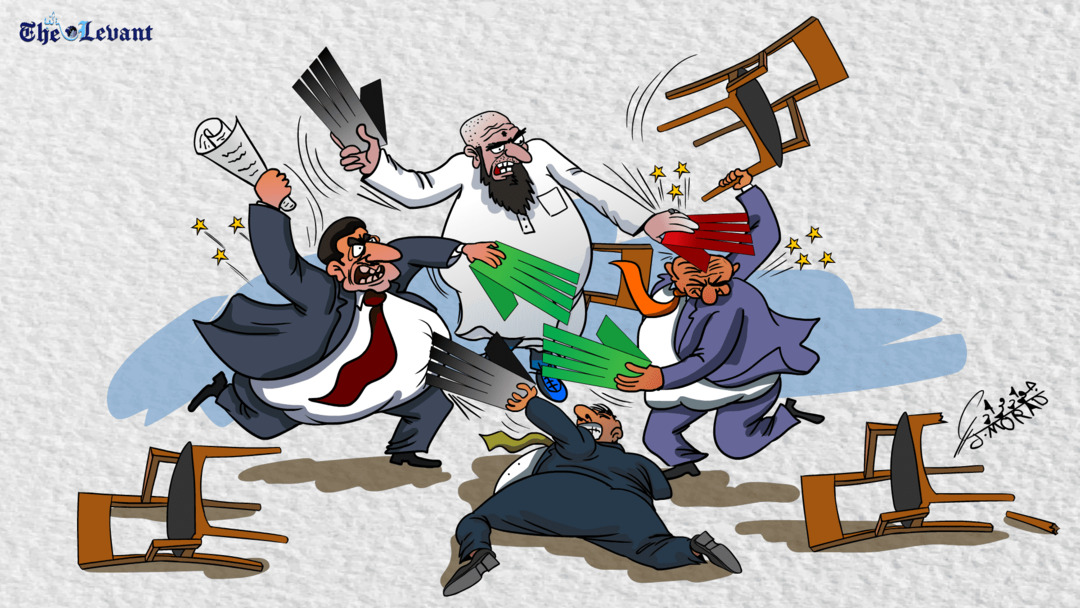On September 12th, the opposition Syrian Coalition conducted elections to choose a new president, following a month-long delay and away from media attention. This election aimed to find a successor to Salem al-Meslet, whose request for a one-year term extension had been rejected by Ankara. The implications of this move ripple through Turkey’s new approach to the Syrian crisis, shedding light on the complex and interconnected issues it faces. These dynamics sometimes make it challenging to address them as a cohesive whole and at other times necessitate a more nuanced approach.
While delving into the intricate details leading up to the election and the election session itself isn’t the primary focus here, it’s important to note that both hold connotations that hint at significant shifts within the entity’s structure, altering its composition and power dynamics. Consequently, the entity’s policies are taking shape and evolving in response to the changing stances and policies of influential nations involved in the Syrian crisis, notably Turkey, the United States, and to some extent, Qatar, which plays a secondary financial role.
The outcome of this election was the declaration of Hadi al-Bahra’s victory as the head of the Syrian Coalition, with his term extending until September of the following year. Bahra is no stranger to this role, having previously served as president in July 2014. During his absence from the presidency, he remained within the inner circle of decision-makers within the entity. Several factors might have contributed to his selection, including his biography, which suggests that he could be a valuable asset or a “wild card” to be deployed when needed. Bahra’s educational background is rooted in the United States, but his professional experience is closely tied to the Kingdom of Saudi Arabia, where he took his initial steps in the realm of politics.
In May 2013, the National Council, later renamed the Syrian Coalition, underwent its second “expansion.” This transformation followed US Secretary of State Hillary Clinton’s call, issued in Zagreb, urging the council to “attract new segments,” including the so-called “liberals.” These liberals can be categorized into two groups: those who adopted liberal values as a reflection of their socio-economic background, and those who embraced liberalism as a result of temporary circumstances, coupled with a reading of the political climate. Bahra falls into the latter category, representing a significant segment of the growing liberal movement within Syria since the fall of Baghdad in 2003.
Bahra’s appointment to lead the coalition represented a convergence of Turkish and American interests. Ankara aimed to tighten its control over the coalition, as evidenced by its recent efforts to consolidate the Syrian regions it occupies under a single “governor,” as opposed to the previous fragmented approach. Similarly, Washington viewed this move as a way to diminish the coalition’s role, which had largely become a “media” institution, with many of its critics residing in foreign hotels and relying heavily on social media. Consequently, the coalition lost its influence on the ground and in policy decisions, reduced to issuing statements and endorsing decisions and laws that often exacerbated the Syrian crisis. This shift also coincided with the increasing prominence of the “High Negotiating Committee,” whose composition had become more acceptable to the United States and the broader Western community, thanks to the growing influence of the liberal factions over the past two years.
Over the last three years, the Syrian Coalition has grappled with numerous crises stemming from the conflicting ideologies and visions within its ranks. These internal tensions have persisted despite a shared overarching goal. The erosion of this common objective has allowed these contradictions to surface and take center stage in the coalition’s internal dynamics.
This article was translated and edited by The Syrian Observer. The Syrian Observer has not verified the content of this story. Responsibility for the information and views set out in this article lies entirely with the author.


